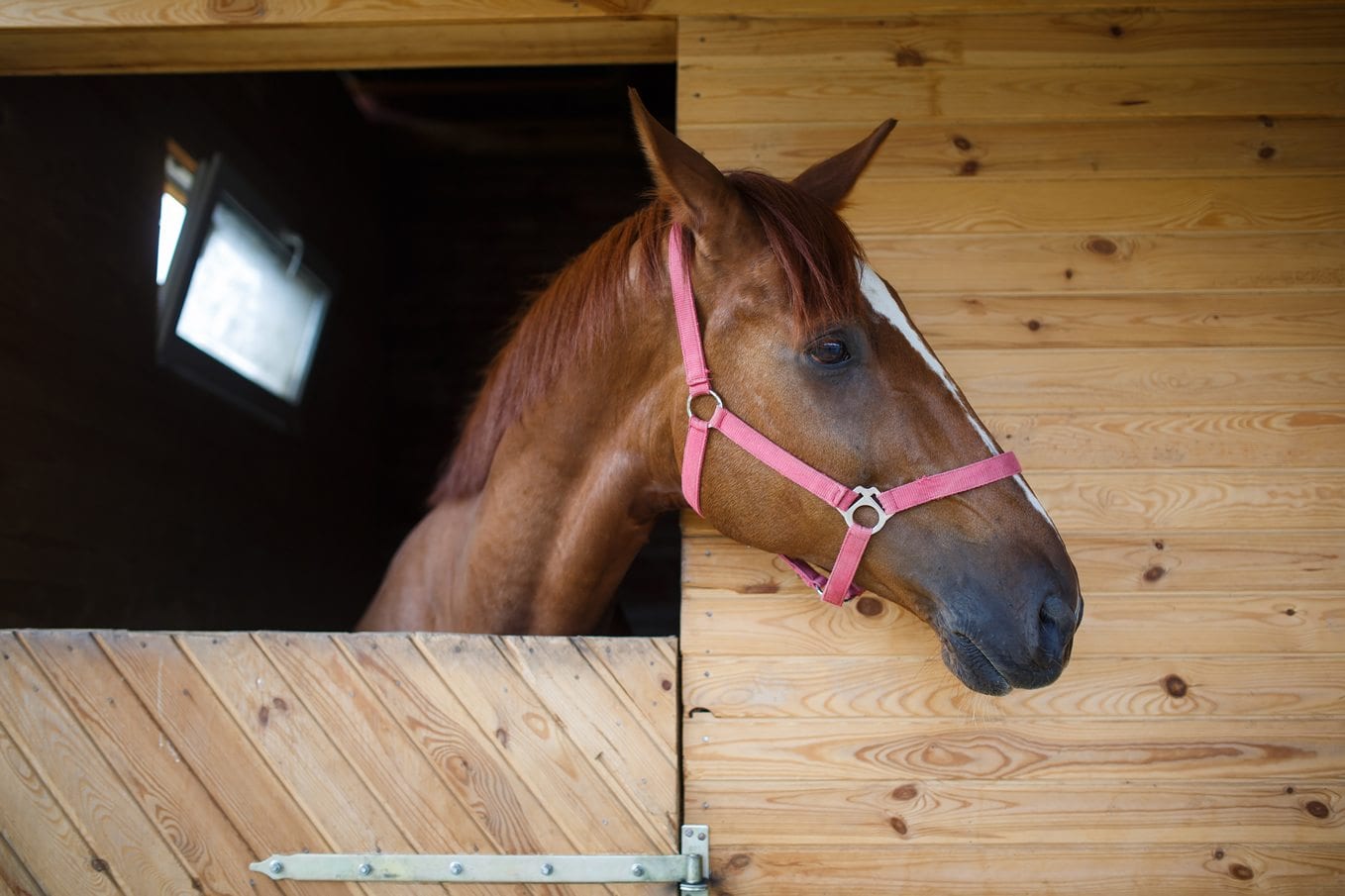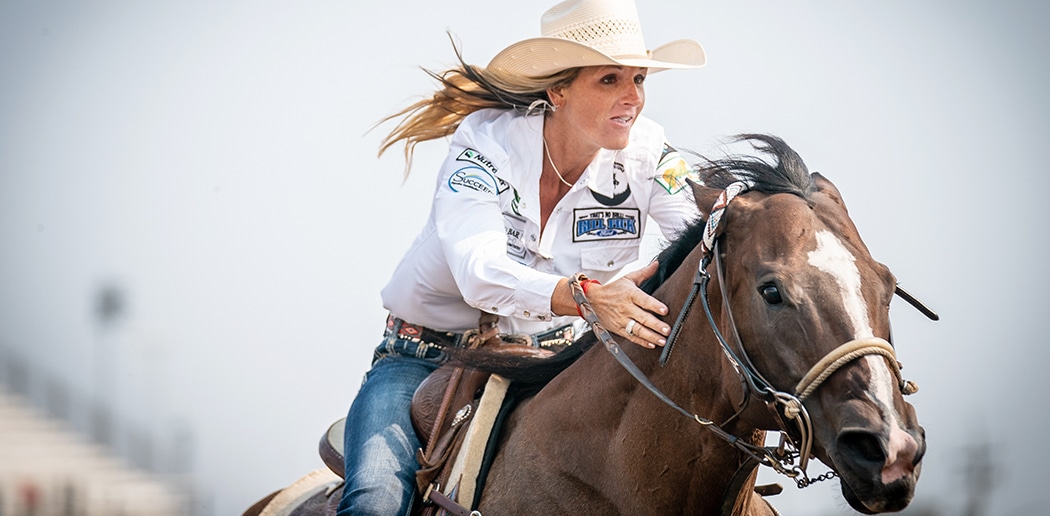Horses need amino acids to make the proteins required for every physiological process, including maintaining the structural integrity and functionality of the digestive tract. Deficiencies in essential amino acids can adversely affect these processes, even if your horse gets adequate crude protein from their diet.
Performance horses are subject to chronic stress, which can decrease immune function and degrade digestive tract integrity. Plus, certain amino acids may become conditionally essential during periods of intense training or rapid growth. Deficiencies in these amino acids can impede healing, decrease nutrient absorption and lead to muscle loss.
Supplementing amino acids that support equine wellness and digestion can help manage the effects of stress on your horse’s health and performance. Keep reading to learn more about the roles of amino acids in equine health and which amino acids to supplement.
Amino Acids in Equine Health and Digestion
Amino acids are the building blocks of proteins, the complex molecules that play critical roles in nearly every physiological function of your horse’s body. Horses need a balanced range of amino acids to support muscle, metabolic, immune, and digestive health.
Supplementation with amino acids has several benefits for equine digestive health. Providing adequate amino acids supports digestive tract repair, mucus production, muscle development, and nutrient absorption.
Repair GI Tract Lesions
Horses rely on several amino acids to maintain the gastrointestinal lining. The cells lining the digestive tract use specific amino acids as fuel and proteins that are vital for tissue regeneration. Inadequate amino acids can increase intestinal permeability as well as hinder the healing of lesions and damaged tissue. (Stewart et al., 2017)
Gut lesions are characteristic of several digestive problems commonly affecting performance horses. Providing your horse with amino acids that assist in digestive healing can help promote recovery and strengthen the lining of the digestive tract.
Rebuild Mucus Supply
Mucin proteins in the digestive system form a protective barrier between the cells of the gastrointestinal lining and the acidic environment of the digestive tract. The mucosal barrier also protects the gut wall against digestive enzymes and physical damage from the feed passing through the digestive tract. (Mastellar et al., 2016a)
Intestinal inflammation associated with high-energy diets increases mucus production in the digestive tract, which increases amino acid requirements in performance horses. Providing amino acids promotes a healthy mucous layer, which protects the stomach and intestinal lining.
Support Healthy Muscle
Protein synthesis is vital for muscle growth and repair in horses. Your horse’s body is constantly breaking down and synthesizing proteins. If your horse doesn’t receive adequate amino acids from their diet, you may notice muscle mass loss as their body breaks down the proteins in muscle tissue for other physiological processes. (Mok et al., 2020)
Exercise increases amino acid requirements for muscle function and development. Since horses don’t store excess amino acids, they need a constant dietary supply to prevent deficiency.
Aid Nutrient Absorption
Horses absorb amino acids in the small intestine. However, these molecules also impact the absorption of other nutrients. Amino acids help strengthen intestinal villi, the projections that line the small intestine. Damage to the villi reduces surface area, decreasing nutrient absorption. (Bilkslager et al., 2017)
Amino acids are also essential for forming tight junctions between cells in the lining of the digestive tract. These junctions regulate nutrient absorption while preventing disease-causing pathogens from crossing the gut barrier. (Stewart et al., 2017)
Amino Acid Supplements for Horses
There are 21 amino acids found in the proteins in your horse’s body. However, not all of these proteins require supplementation. The best amino acid supplement for your horse will depend on their dietary requirements and individual needs.
While horses can synthesize non-essential amino acids, their diet must supply adequate amounts of 10 essential amino acids. Other amino acids are conditionally essential when needs exceed what your horse can produce due to stress, disease, or performance demands. (Mok et al., 2020)
You can learn more about the specific functions and benefits of amino acids L-Glutamine and L-Threonine on our website.
Don’t Rely on Feed Alone to Provide Essential Amino Acids
In conclusion, your horse can synthesize non-essential amino acids, but you must rely on their diet to supply adequate amounts of 10 essential amino acids. That’s a lot to ask of any feed, even of the highest quality. Supplementing with a prebiotic formula that includes these essential amino acids is the most reliable way to ensure your equine partner is getting what it needs to perform at its best.
References
- Stewart, A. et al. Alterations in Intestinal Permeability: The Role of the “Leaky Gut” in Health and Disease. J Equine Vet Sci. 2017.
- Mastellar, S. et al. Effects of threonine supplementation on whole-body protein synthesis and plasma metabolites in growing and mature horses. The Vet J. 2016.
- Mok, C. et al. Amino acid requirements in horses. Asian-Australas J Anim Sci. 2020.
- Bilkslager, A. et al. Small Intestinal Function. The Equine Acute Abdomen. 2017.
- Stefanon, B. et al. Administration of branched-chain amino acids to standardbred horses in training. J Equine Vet Sci. 2000.
- Mastellar, S. et al. Controlled trial of whole body protein synthesis and plasma amino acid concentrations in yearling horses fed graded amounts of lysine. The Vet J. 2016.




